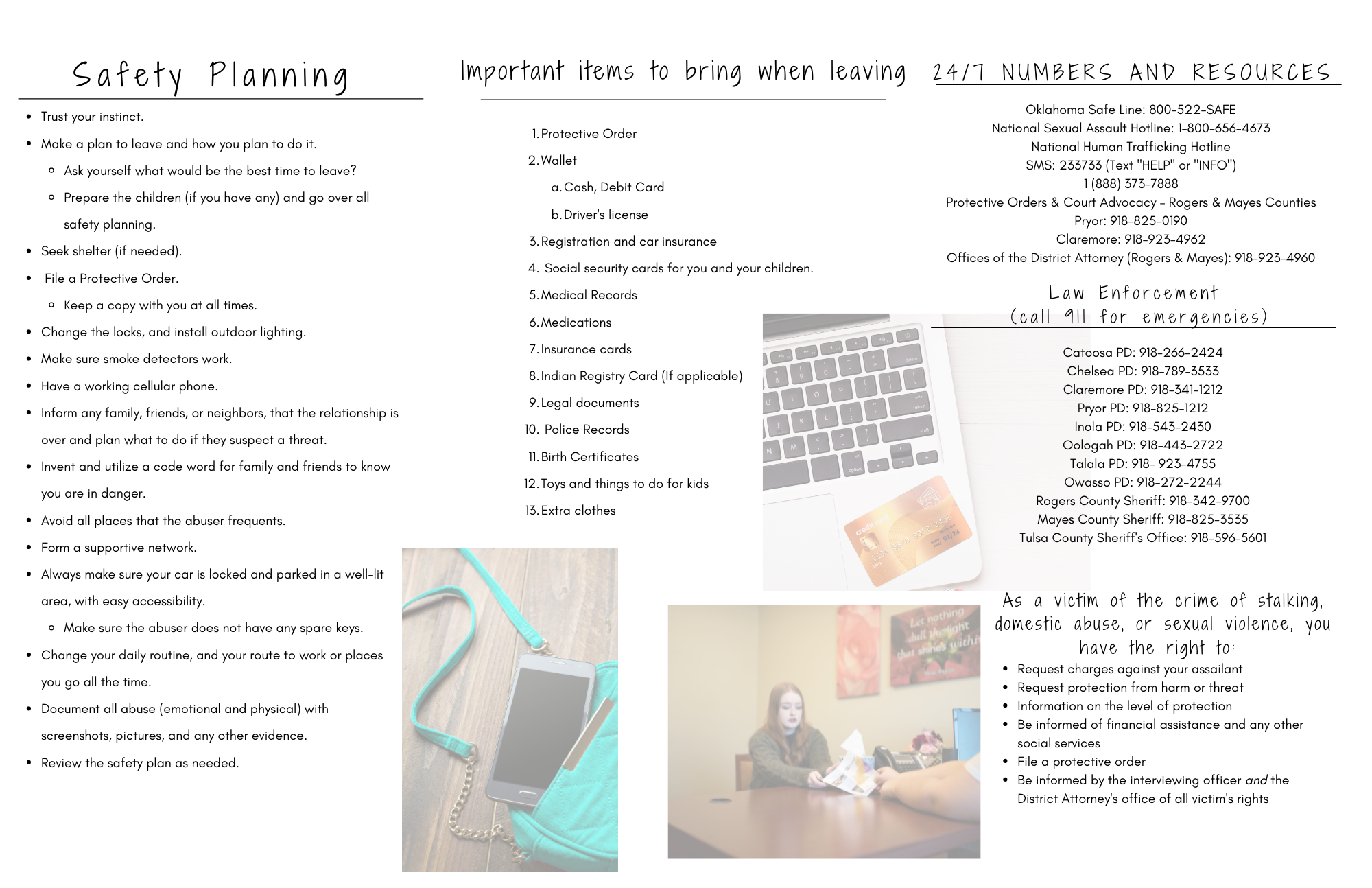Safety Resources
Domestic violence, abuse and sexual assault should never happen
The reality, however, is that one in three women and one and four men will experience partner abuse in their lives.
What is domestic violence?
“Domestic violence is the willful intimidation, physical assault, battery, sexual assault, and/or other abusive behavior as part of a systematic pattern of power and control perpetrated by one intimate partner against another. It includes physical violence, sexual violence, psychological violence, and emotional abuse. The frequency and severity of domestic violence can vary dramatically; however, the one constant component of domestic violence is one partner’s consistent efforts to maintain power and control over the other.”
-According to the National Coalition Against Domestic Violence.
Abuse can begin with behaviors that may be dismissed or downplayed. Behavior such as name-calling, threats, possessiveness, or distrust. Abusers may apologize profusely for their actions or try to convince the person they are abusing that they do these things out of love or care. However, violence and control always intensifies over time with an abuser, despite the apologies. What may start out as something that was first believed to be harmless (e.g., wanting the victim to spend all their time only with them because they love them so much) escalates into extreme control and abuse (e.g., threatening to kill or hurt the victim or others if they speak to family, friends, etc.).
Some examples of abusive tendencies include but are not limited to:
- Telling the victim that they can never do anything right
- Showing jealousy of the victim’s family and friends and time spent away
- Accusing the victim of cheating
- Keeping or discouraging the victim from seeing friends or family members
- Embarrassing or shaming the victim with put-downs
- Controlling every penny spent in the household
- Taking the victim’s money or refusing to give them money for expenses
- Looking at or acting in ways that scare the person they are abusing
- Controlling who the victim sees, where they go, or what they do
- Dictating how the victim dresses, wears their hair, etc.
- Stalking the victim or monitoring their victim’s every move (in person or also via the internet and/or other devices such as GPS tracking or the victim’s phone)
- Preventing the victim from making their own decisions
- Telling the victim that they are a bad parent or threatening to hurt, kill, or take away their children
- Threatening to hurt or kill the victim’s friends, loved ones, or pets
- Intimidating the victim with guns, knives, or other weapons
- Pressuring the victim to have sex when they don’t want to or to do things sexually they are not comfortable with
- Forcing sex with others
- Pressuring or forcing the victim to use drugs or alcohol
- Preventing the victim from working or attending school, harassing the victim at either, keeping their victim up all night so they perform badly at their job or in school
- Destroying the victim’s property”
Are you in a violent or abusive situation?
Safenet Services has the tools to help you break free from domestic violence. We know you are not just a statistic, you have a very unique situation and you need a solution that will work for your circumstances. We acknowledge the courage it takes to move from a violent situation into change and action.
It is up to you to stop the violence in your life,
but you don’t have to do it alone.
Let us help you.
Oklahoma ranks third in the nation for women murdered by intimate partners. Women who are in dangerous situations rarely believe their mate is capable of murder. Please don’t wait. We can help you begin a new life for yourself and your children.
Crisis Line
Our Crisis Line is answered 24/7. Call 918-341-1424 for assistance

